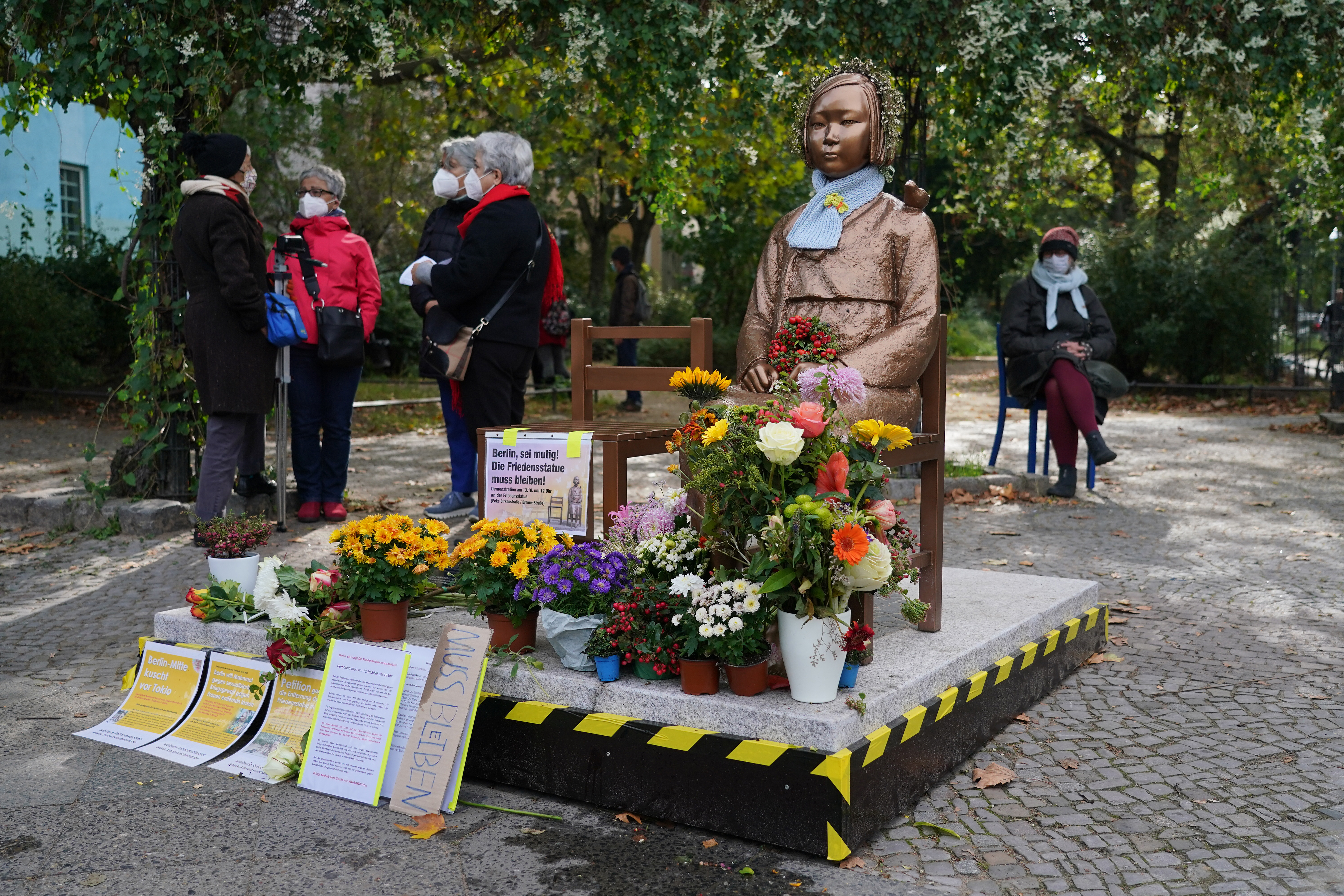On January 8 a South Korean central district court in Seoul ruled that Japan should compensate 12 Korean women forced into a system of sexual slavery set up and operated by the Japanese Imperial Army from 1932 to 1945, The Wall Street Journal reports.
The ruling, which states that Tokyo should pay each plaintiff around $90,000, was rejected out of hand by the Japanese government, further straining ties between the two key U.S. allies.
“This is completely unacceptable,” Japanese Prime Minister Yoshihide Suga said in a statement. “I strongly urge the South Korean government to take measures to correct this violation of international law.”
Historians estimate that about 200,000 women were abducted, coerced, or deceived into sexual slavery; many did not survive the war or were killed by their Japanese captors when defeat became imminent. Those held captive were predominately Korean, but also included women from Singapore, Myanmar, Vietnam, Thailand, Indonesia, and Taiwan.
Called “comfort women” by Japanese military personnel — a “linguistically warped categorization of the thousands of women and girls, many from poor communities, who were forced to serve as sex slaves,” writes NPR — the sexual slaves were held at “comfort stations” across Asia, often near the front lines.
One woman in a Taiwan station reported that on Saturdays so many soldiers came that “the ends of the queues were sometimes invisible….Each woman had to serve 20 to 30 soldiers a day. We were already very weak, but going without good food and being forced to serve so many men left some of us half dead.”
For those who survived, the war did not end in 1945. Many, if not all, suffered from post-traumatic stress disorder, sexually transmitted diseases, and damaged reproductive systems. Shunned by their families for their perceived loss of “honor”, many of the women were treated as outcasts by society upon returning home.
It was not until 1990 that the tragedy of “comfort women” became public knowledge. Kim Kaksun, one of the first Korean women to reveal her story, said in a story in Military History Quarterly, “Why haven’t I been able to lead a normal life, free from shame, like other people? I feel I could tear apart, limb by limb, those who took away my innocence and made me as I am. Yet how can I appease my bitterness? Now I don’t want to disturb my memories further. Once I am dead and gone, I wonder whether the Korean or Japanese governments will pay any attention to the miserable life of a woman like me.”
The latest call for reparations, however, “opens another Pandora’s box,” Jin Chang-soo, an expert on Japan at the Sejong Institute, told the WSJ. “More people will file suits against the Japanese government in Korean courts” and, he notes, the rulings will be almost impossible to enforce.
For the Japanese government, the matter was settled under its 1965 treaty with South Korea. Citing that it paid South Korea $300 million in grants and $200 million in loans, the Japanese also point to the fact that the treaty stipulated that those payments resolved “problems concerning property, rights and interests” between the two nations.
For the first time in 1991 the Japanese government publicly recognized that comfort stations existed during the war, although it stopped short of accepting any legal responsibility for the sexual abuses that took place.
On August 4, 1993 the Japanese issued an official apology, known as the Kono Statement, to the women its WWII forces sexually enslaved. Issued by Yōhei Kōno, the then chief cabinet secretary, the apology acknowledged that the Japanese military played at least an indirect role in forcing women into sexual slavery. That has since been the Japanese government’s official stance.
Another agreement signed in 2015 stipulated that Tokyo set up a $9 million fund to compensate the victims, with then-Japanese Prime Minister Shinzo Abe also issuing a verbal apology. The agreement was later scrapped by South Korea President Moon Jae-in who stated that the settlement did not have the support of the women, writes the WSJ.
For many of the victims, Abe’s apology did not go far enough. “I never wanted to give comfort to those men,” Yong Soo Lee told the Washington Post in 2015. “That name was made up by Japan. I was taken from my home as a child. My right to be happy, to marry, to have a family, it was all taken from me.”
She continued, “I don’t want to hate or hold a grudge, but I can never forgive what happened to me.”





